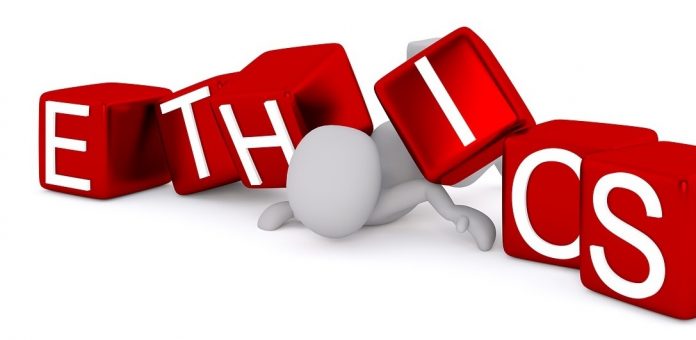According to The World Bank [1], 766 million people survived on only $1.90 a day in 2013, and 1.5 billion people suffered a form of violence in 2014 [2]. It was thought that after the Second World War, peace and prosperity would be instituted worldwide and that the establishment of a global order of things would improve the lot of both states and individuals. However, in recent years it has become increasingly clear that a perfect order never existed. We live in a world where the daily tells tales of murder, children’s malnutrition, displacements, refugees, and environmental disasters. Certainly, all of these issues are the result of contesting political forces and their aims to gain supremacy over people and other states that ignores any moralism or pure ethical judgements.
Today’s world is not exempt from emphasizing the importance of national interests over international norms and rules. The predominance of self-interest and egoistic passions[3] has led us to live in a realist world where success is measured by gaining economic power and military security – goals that constrain the vision for global ethics [4]. Some scholars and political experts claim the importance of ethical reasoning within political decisions, but it is still contested as to how these values can possibly fit in a system of international and political affairs that devalues morality [5].
During the last century, the world has been ordered according to a nation’s power. This is often measured in terms of economic and military strength, as well as international legitimacy. In this regard, since the end of the Cold War the United States has been considered the most powerful state, due to its strong economic and military capacity. The US’ central role in current global affairs is undeniable. Its influence has evolved to a level wherein every single state has experienced the touch of the US in some form or another. The question is, has this control and supreme authority been a positive force in international political affairs?
In 2001, the “War on Terror” was announced by the United States. The terrorist attack of September 11, 2001 became the renaissance of a security dilemma wherein threats, fear, and insecurity became tools for reshaping national interests and the world’s environment. The US response involved the use of arms and military incursions into several Middle-East countries, creating a new theatre of war that has since transformed into an endless conflict. Was George W. Bush administration’s reaction ethically “good” or “bad”? The physical damage caused by the destruction of the Twin Towers in New York City can be counted in the thousands of dead. Even more however, the US’ national security, thought to be absolute, was threatened[6]. But, what was Afghanistan’s point of view? Does the US have the right to invade and violate their sovereignty? It is true that some negotiations were held before the US invasion, despite that, is the invasion of an entire nation justifiable in light of an attack by stateless terrorists?
It was hoped that after two world wars, the world was developing within a common institution of morality, and somehow its application would cement international stability. Apparently, these foundations disregarded the fact that even though there are moral principles established within an international community, its application and interpretation could generate differing ethical judgements. As many realists argue, the inherent self-interest of human nature places statecraft over global justice and universal values, making global ethics somewhat of a utopian dream that seems unreachable in a world where diversity prevails.
Considering other key aspects of realism, national economic interests and well-being have been hostile towards global ethics. There are several cases in developing countries where an attempt to apply the neoliberal model has resulted in unexpected growth inequality. The economic growth in China, for instance, can be one of the most remarkable examples of this. Even though, nowadays this Asian country has become one of history’s greatest economic powers, it is suffering from one of the worst evils in political affairs, amoralism. China’s case demonstrates two competing values from an international and domestic perspective, the quest for economic supremacy and the principle of equality. Hans Morgenthau[3] claims that the difference between the moral principles held by the nations and the ones held with other nations in an anarchical system creates a status of moral subordination.
In this regard, China’s economic growth has set aside the internal problems associated with rapid progress. In recent years, rising inequality has become a major side effect of the transition to global economic powerhouse. The gap between the rich and the poor has increased, and thereby equal access to vital services such as education and health have been hindered[7]. Where is the government’s interest in its national society? There is an ethical struggle inherent in the achievement of realist notions of development. Whether China is seen as an example of economic development or as a threat to the current international order, are its foreign and domestic policies ethical enough to provide for different state and non-state actors?
All of this leads to the conclusion that global ethics are unlikely to flourish in today’s realist world. Differing values, traditions, beliefs and even national backgrounds generate disagreement about the nature and inherent value of ethics in international society. In this sense, it is relevant recalling that ethical traditions are constantly being modified, especially in particular circumstances where national interests can either undermine or reshape moral principles according to what it is perceived as a good action[8]. Even though the ideal of global ethics could be achieved through a balance of morality and politics, states would still pursue their national interests at the expense of the common international good, leading to a continuation of the same ethical concerns and questions within each sovereign state[9].
NOTES
1. The World Bank, Poverty & Equity Data. 2017, The World Bank Group.
2. Inkster, N., The IISS Armed Conflict Survey 2015, in The Worlwide review of political, military and humanitarian trends in current conflicts, T.A.C. Survey, Editor. 2015, Arundel House: London. p. 4.
3. Donnelly, J., T. Nardin, and D.R. Mapel, Chapter 5: Twentieth century realism, in Traditions of international ethics. 1992, Cambridge University Press: Cambridge, New York. p. 85-111.
4. Bell, D., Ethics and world politics. 2010, Oxford: Oxford University Press.
5. Amstutz, M.R., International Ethics. 2013, United States: Rowman & Littlefield Publishers.
6. Lieven, A. and A. Hulsman, Ethical Realism: A Vision for America’s Role in the World, in Huffpost. 2006, The Huffington Post.
7. Hsu, S. High Income Inequality Still Festering In China. 2016.
8. Mapel, D.R. and T. Nardin, Ethical Traditions in International Affairs, in Traditions of International Ethics. 1992, Cambridge University Press: Cambridge. p. 1-22.
9. Nardin, T., Middle-Ground Ethics: Can One Be Politically Realistic Without Being a Political Realist? Ethics & International Affairs, 2011. 25(1).

Ingrid Valladares holds a Dual Bachelor in Economics from the Catholic University of Ecuador and the Université Pierre-Mendes Grenoble. Also, she has a Bachelor in Education with major in English from the Private Technical University of Loja, and a Master in International Relations from The University of Queensland. She is currently the Social Media and Public Relations Manager at the United Nations Association of Australia’s Young Professionals Network (QLD Division) and a Senior Correspondent for the Organisation for World Peace – Australian Division.


